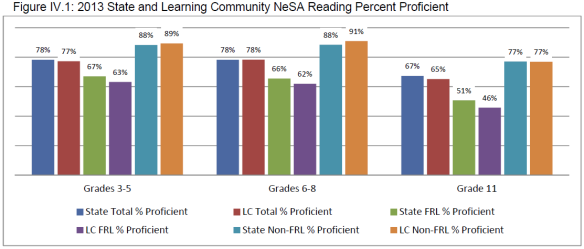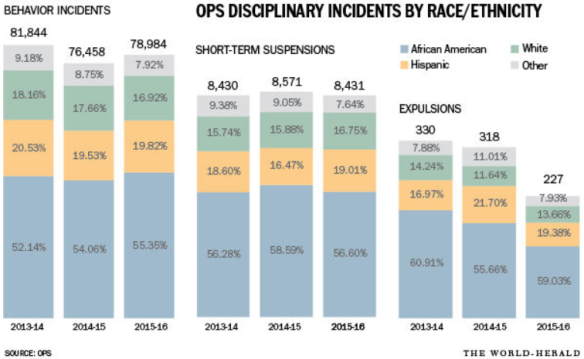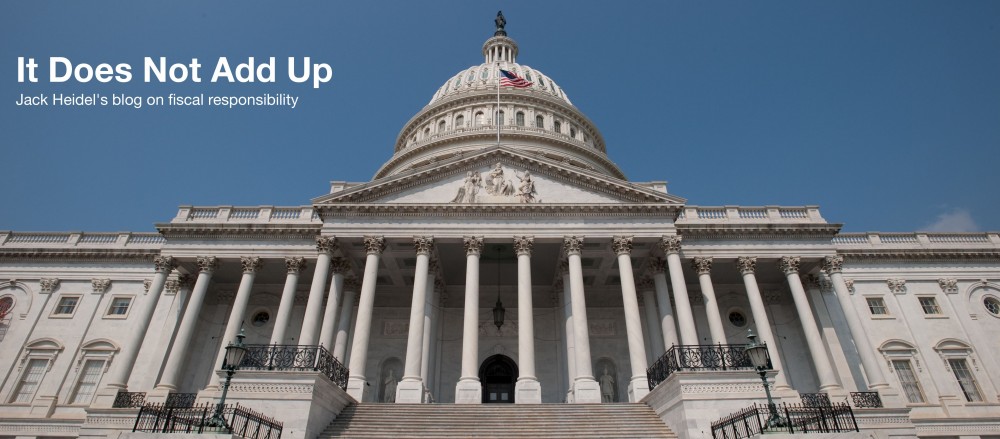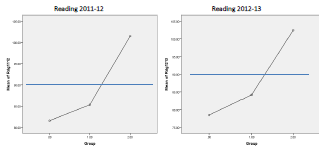My last post, “Racism and Black Progress,” pointed out that, despite all of the racial tension in our society, especially bad at the present time, blacks have made much social and economic progress over the past half century. All Americans of good will want this progress to continue.
I live in Omaha NE and am personally involved in a very promising public initiative to improve educational outcomes in inner city schools. It is called the Learning Community and is an Omaha metro-wide effort to close the academic achievement gap between children from low-income families and those from the middle class.
 The above chart shows clearly what the problem is. Already in third grade FRL (free and reduced priced lunch) kids are behind on the NeSA (Nebraska State Assessment) reading test. The gap persists into middle school and then gets much worse in high school.
The above chart shows clearly what the problem is. Already in third grade FRL (free and reduced priced lunch) kids are behind on the NeSA (Nebraska State Assessment) reading test. The gap persists into middle school and then gets much worse in high school.
 A recent article in the Omaha World Herald reports that while black students make up 25% of Omaha Public Schools enrollment, they are responsible for 55% of disciplinary incidents. Obviously, disruptive students are not learning what they need to know to succeed in school and in life.
A recent article in the Omaha World Herald reports that while black students make up 25% of Omaha Public Schools enrollment, they are responsible for 55% of disciplinary incidents. Obviously, disruptive students are not learning what they need to know to succeed in school and in life.
A promising solution to this very difficult problem of improving educational outcomes for inner city students is early childhood education to prepare these kids to succeed in Kindergarten and then stay in school until graduation. This is in fact the approach being taken by Omaha’s Learning Community. But it is clearly a long range program which will take many years to show success.
Conclusion. A solid basic education is essential for success in today’s highly complex society. Blacks will never reach full social and economic equality with whites until they achieve better educational outcomes. Early childhood education has much promise in closing the academic achievement gap but will take many years to show significant progress.

